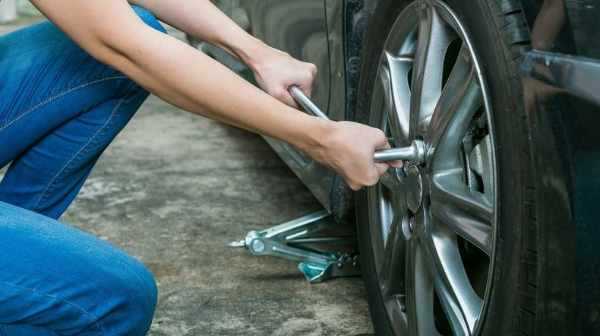From changing the oil to checking the fluids, a lot goes into keeping a car in good working condition. A common question that comes up with car owners is how often they should change their car tires. Amongst various other components, the optimal performance of your car tires is vital to keep your car in good running condition and maintain its performance, safety, and efficiency.
If you are wondering when to replace your old tires, then look no further. This article will present all you know about when it may be time to replace your car tires.
Why Replace Car Tires
All tires, regardless of the type of car, degrade over time due to numerous factors, including weather, storage conditions, and conditions of use. New tires make for a smoother, more comfortable ride, while some modern brands may even improve your car`s gas mileage.
More importantly, tires are the most crucial safety feature on a car. Old, worn-out tires may lead to various problems and risks to the car and its occupants. These include uneven wheel alignment and balance problems, compromised road grip, blowouts leading to a crash, and difficulty stopping and braking effectively.
Installing a new set of tires may be pricey, but putting it off can multiply your costs manifold while presenting a significant safety hazard.
When To Change Your Car Tires
The condition and lifespan of the tires and whether they need replacement largely depends on the extent to which they have been used, your driving habits, weather extremes, and the road conditions.
In addition, the care put into the tires is also a significant determinant of their condition and when you must replace them. If you own an Audi, the experts at Audi Shawnee Mission recommend that you schedule service at their service center and have your tires inspected by highly trained technicians for peak performance and prolonged lifespan. You may even purchase replacement tires, if needed, at affordable prices.
With that said, there are a few essential points of reference that should help you determine if it may be time for replacement: They are as follows:
Tread Wear
Tread depth is perhaps the most vital determinant of whether you should start your search for new car tires. The tread refers to the tire`s ability to maintain a strong grip on wet roads. Regular wear and tear lead to it wearing out. That will cause the tires to lose traction when you brake, and they will not grip the road effectively when driving in the rain, ice, or snow.
To know whether the tread is starting to wear out, measure the tire tread depth using the penny or a quarter test. A tire is unsafe for usage when worn down to 2/32, which means you must replace it.
Age of the Tires
NHTSA recommends that you change your car tires every six years, even if they have not reached their tread limit and appear to be in usable condition. Ten years is the absolute maximum lifespan for years, regardless of how many miles you may have driven them. All tires are at risk of beginning to dry rot and crack after 5 or 6 years. It is essential to have them inspected annually for any issues when they exceed that period.
Driving with dry rotted tires could create a safety hazard, ultimately leading to a blowout or flat tire. Accordingly, investing in new, high-quality tires every 6-10 years can save you from costly problems down the line while keeping you safe on the road.
To determine the age of your car tires, you have to read the date code stamped on the sidewall, starting with DOT (Department of Transportation). Look for the set of four digits which will contain the manufacturing date of the tires. The last two digits of the code will indicate the year the tires were manufactured.
Vibration
If you feel the steering wheel vibrate while you drive, there is a strong possibility that the tires may be worn out unevenly. It may also be that the tires are unbalanced, or perhaps there is an alignment issue with the suspension.
In both cases, you must get your tires checked at the earliest. If the later issue is resolved, and you still experience the vibration, it is a sign that the tire may be damaged and must be replaced immediately.
Knowing when to replace your tires can often be a tricky call. With that said, it is crucial to stay proactive to be mindful of them. As the main point of contact with the ground, tires take a lot of beating. While regularly checking them for general wear and tear to ensure they are in good working condition is essential, having them inspected by a professional mechanic after six years becomes even more crucial.
Remember, the older your tires are, the less performance you will get out of them, all while compromising your safety and comfort. Once they hit the ten-year mark, you must change to a new set for the safety of your car and that of others.

